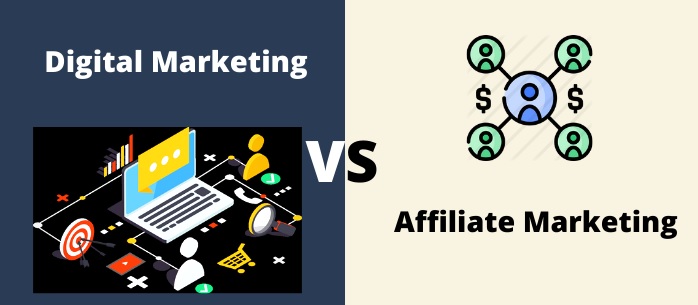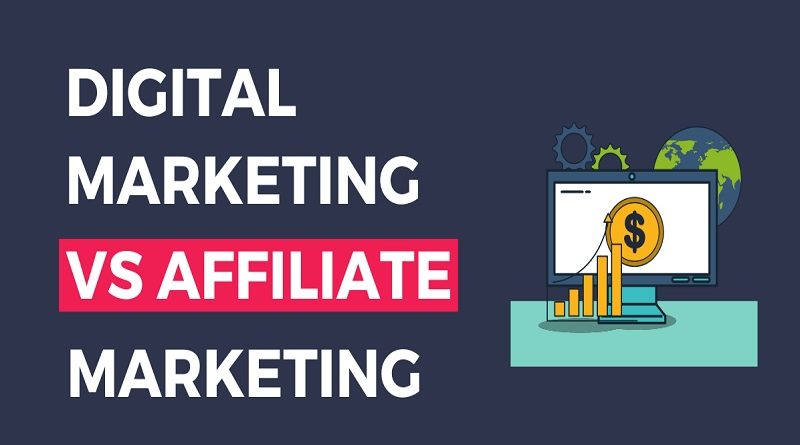Affiliate Marketing vs Digital Marketing:
Affiliate Marketing vs Digital Marketing: Understanding the Differences and Similarities
In today’s digital world, businesses are looking for effective ways to reach their target audience and boost their sales. Two popular marketing strategies are affiliate marketing and digital marketing. While both aim to promote products and services, they have different approaches and objectives. In this article, we will compare affiliate marketing and digital marketing and help you understand the differences and similarities between them.

What is Affiliate Marketing?
Affiliate marketing is a type of performance-based marketing where an affiliate promotes a product or service and earns a commission for every sale or lead generated through their referral. Affiliates can be individuals or companies that have an online presence, such as a blog, social media account, or website. The commission structure varies based on the program, but it is usually a percentage of the sale or a fixed amount for every lead generated.
What is Digital Marketing?
Digital marketing is a broad term that encompasses all the marketing activities that use digital channels to promote products and services. This includes search engine optimization (SEO), social media marketing, email marketing, pay-per-click (PPC) advertising, content marketing, and more. The objective of digital marketing is to attract, engage, and convert prospects into customers through various digital channels.
The Differences
- Objective: The primary objective of affiliate marketing is to generate leads or sales through referrals, while the objective of digital marketing is to build brand awareness, attract prospects, and convert them into customers.
- Target audience: Affiliate marketing relies on affiliates’ ability to promote products or services to their audience, while digital marketing focuses on reaching a broader audience through various channels, including search engines, social media, and email.
- Cost structure: Affiliate marketing is a performance-based marketing strategy where the commission is paid only when a sale or lead is generated. Digital marketing, on the other hand, can have a fixed or variable cost structure, depending on the channel and the campaign.
- Control: In affiliate marketing, the merchant (the company offering the product or service) has limited control over the affiliates’ marketing activities. In digital marketing, the business has full control over the marketing activities, channels, and messaging.
Affiliate Marketing vs Digital Marketing: The Similarities
- Results-driven: Both affiliate marketing and digital marketing are results-driven strategies that aim to generate leads and sales for the business.
- Measurable: Both strategies are measurable, allowing the business to track their performance, ROI, and adjust their campaigns accordingly.
- Data-driven: Both strategies rely on data to optimize their campaigns and improve their results.
- Cost-effective: Both strategies can be cost-effective compared to traditional marketing methods, allowing businesses to reach a broader audience with a lower budget.
Conclusion
Both affiliate marketing and digital marketing are effective ways to promote products and services and generate leads and sales for the business. While they have different approaches and objectives, they share many similarities and can complement each other in a comprehensive marketing strategy. It is important to understand the differences between these two strategies and choose the one that best fits your business goals, budget, and audience.
Table of Contents
Submitted By Uzair Ahmed




